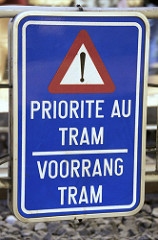I have been in the Netherlands exactly one year today, and even though I’ve spent much of my life in Europe, I’d never been a DIY expat.
I – we as a family – have learned soooo much … way beyond thinking in kilos and kilometers.
Here are my 10 lessons – learned the hard way – from my year of living in Eindhoven.
Full disclosure – I rarely read those “10 Things You Must Know to Be Successful” posts on Medium. The 10 habits of successful billionaires. The 10 ways to hack your life. The 10 ways to fool readers into engaging with click bait.
Hellooooo …. you won’t become a billionaire just because you get up at 4:30 in the morning or make lists. You become a billionaire because your brain is wired to triumph in the brutal world of business. But even if you’re a slacker, you can tell your friends you’re doing the inane things the Medium bloggers think billionaires do, such as “being curious” and “investing in yourself.”
That said, I do see the efficacy of giving readers a lot of info condensed into a manageable format, a tool I happened to need at the moment.
No surprise … with Donald J. Trump in the White House, my wife Cheryl and I have been getting more emails and calls from our friends about sending their kids to the Netherlands for the summer.
Not just for a vacation, but for international experiences in an increasingly globalized world (whether the Steve Bannons and Nigel Farages of the world like it or not.)
I want to help prepare them for the expat life, though I am more prone to believe people are likely wired from birth to be an expat and live a peripatetic life, or wired to stay in the bubble of familiarity and routine.
Americans especially can use some smartening up before they try to settle into new lives.
1 – Be civil: This is the one I have the most trouble with. I am Ari Gold. I’m emphatic, abrupt and blunt. I’m totally impatient. In other words, I’m a typical American.
That sort of behavior is not only frowned upon here, it’s completely counterproductive in Europe as a whole.
In the Netherlands where I live, no one ever raises their voice. Ever. I’ve seen people in the Netherlands crash their bikes into each other, pull them apart and ride off without so much as a howdy do. So you can’t yell at people working at McDonald’s when service is slow. You can’t indulge in road rage. You can’t bully, wheedle and cajole people to get your way.
Yes, the frustration will be eating away at your insides, but you learn to keep that under control, too. Thank God my wife Cheryl is our family diplomat.
 2 – Learn another language: I never bothered to learn Dutch before moving to the Netherlands because everyone speaks fluent English. My daughter Lucy’s boyfriend Charlie, for example, works in the hotel business, and he speaks Dutch (his first language), French (his Dad’s language), perfect colloquial English and fluent Portuguese, along with a fair knowledge of German and Spanish.
2 – Learn another language: I never bothered to learn Dutch before moving to the Netherlands because everyone speaks fluent English. My daughter Lucy’s boyfriend Charlie, for example, works in the hotel business, and he speaks Dutch (his first language), French (his Dad’s language), perfect colloquial English and fluent Portuguese, along with a fair knowledge of German and Spanish.
Of course, when I say everyone speaks English, that’s not really true. Our landlords don’t speak a lick of English. So I have to hope Charlie’s on his way over, or I have to use my toddler Dutch and lots of hand gestures to tell them our heat is not working.
We – my family – used to speak German and Turkish, but our skills deteriorated with time since we haven’t lived there in a while.
BUT, I can read street signs in five different languages, which is pretty handy when you’re lost or encountering delays.
Our lack of fluency is Dutch is a liability, but one we will fix in time.
 3 – Be flexible: If you’re anal retentive and you like your routines, you’re going to hate being an expat in Europe. Take daily routines.
3 – Be flexible: If you’re anal retentive and you like your routines, you’re going to hate being an expat in Europe. Take daily routines.
Sometimes the trains get canceled. Sometimes they get switched from one track to another without your realizing it. Sometimes they’re packed so tightly you have to stand.
People aren’t all that punctual for meetings. Sometimes they forget because you’re probably not a priority. If they do, don’t get mad. It wasn’t an intentional slight.
I think the biggest change in my life here over the U.S. is that I step out of the rat race. In the U.S., every waking moment was structured and scheduled.
Here, I sometimes just stop and grab a coffee and just do some people watching. It’s the best coping mechanism.
 4 – Learn their rules, then play by them: The other day in an important meeting, I got frustrated when a Dutch official wanted to add a completely unrealistic stipulation to a project. A project in which I have invested hundreds of hours and thousands of dollars. The only commitment we could get was, “maybe.”
4 – Learn their rules, then play by them: The other day in an important meeting, I got frustrated when a Dutch official wanted to add a completely unrealistic stipulation to a project. A project in which I have invested hundreds of hours and thousands of dollars. The only commitment we could get was, “maybe.”
I went from zero to 100 as the discussion went from positive to confrontational. Ari Gold took over and suddenly I’m giving the guy an ultimatum without having any real leverage. Ready to walk away because “maybe” means “no” to Americans.
The trouble is, “maybe” really means maybe to Europeans. Get used to it.
5 – Slow down: This is another tough one for Americans. Get used to not working.
Americans put in the hours, and they don’t take vacation because that’s seen as disloyal to the company. Think about that for a minute. The Europeans take off for a month, then come back and work 4-day weeks while spending time with family and friends.
Who are the crazy ones here? What we Americans regard as wasting time, Europeans call quality of life.
 6 – Be self reliant. Living in Europe day-to-day as an expat will keep you young because you have to be constantly using your brains and learning stuff.
6 – Be self reliant. Living in Europe day-to-day as an expat will keep you young because you have to be constantly using your brains and learning stuff.
Why has my American credit card stopped working in Europe?
Did I remember to bring some change for the train station WC? Did I remember my train card? How do I used the trams? Am I driving in a bus lane, which will get me killed? Who has the right-of-way in a roundabout? Where will I get my car fixed? How much should I be paying for dry-cleaning? How much do I tip? How do the trains work?
Where can I park in the middle of the city?
Do I know how to pay to get my car out of the parking garage? (This can be a bigger problem than you think because parking garages in Europe typically aren’t open 24 hours. One time, we had to call the management in Saarbrücken, Germany, after we came back from a Christmas Market to find the parking garage locked up tight. At 9 p.m.!)
You constantly have to be figuring out everything. There’s something very rewarding about resolving some small complication every day.
6b – Pay attention. This falls under self-reliance and taking responsibility because you must take responsibility for driving. Europe is an assemblage of super-dense cities. Unlike in the U.S. where cars rule, everyone here is entitled to their part of the road.
So, when you’re driving, you have cars, motorcycles, bikes, pedestrians, farm vehicles and delivery vehicles coming at you from every direction. On top of it, you have pedestrian crossings where you MUST yield right-away.
Whether you’re in Germany, the Netherlands or anywhere in Europe, obeying traffic laws and giving everyone their space is crucial, even critical. The Europeans don’t have much in the way of crime to deal with, so it leaves the police plenty of time to enforce traffic laws. They’re not kidding around around about safety.
For example, if you’re caught on your phone while driving in the Netherlands, the fine is up to 2,000 euros, or two weeks in jail. In the U.S., the cellphone/texting thing isn’t really enforced. Here, you will be in deep, deep trouble.
7 – Be realistic: I see newbies with way crazy expectations of living this Bohemian expat life. EVERYTHING is going to be hard, especially if you’re a DIY expat like us. Getting your long-term residence visa. Opening bank accounts. All the things you take for granted in the U.S. are more involved here for lots of reasons, including Europeans’ love of process and paperwork.
 8 – Develop cultural latitude: You want to come to Europe for the beauty and fun. But along with that come big changes. Take privacy, for example.
8 – Develop cultural latitude: You want to come to Europe for the beauty and fun. But along with that come big changes. Take privacy, for example.
Puritanical Americans have a never-ending row over which bathrooms transsexual people should use. In Europe – especially the Netherlands – that kind of privacy entitlement is just not part of anyone’s realistic expectations.
I can’t tell you how many times I walked in the men’s restroom in public places to be greeted by a woman cleaning up. I was taking care of business recently in the Utrecht train station when a woman in a headscarf bumped into me. We both said, “Sorry,” and went about our days.
When I watch Dutch TV, I cringe through the climax sex lube ads and the reality shows where everyone is naked. In prime time.
If you’re shopping and looking at a rack of clothes, it’s not considered rude in the Netherlands to literally step in front of another person and grab a garment off the display rack. This lack of privacy and personal space is woven through life in Europe.
Just got to go with it.
 9 – Be patient: Everything takes forever, from getting your Internet and phone set up in Germany to getting a doctor’s appointment here in the Netherlands.
9 – Be patient: Everything takes forever, from getting your Internet and phone set up in Germany to getting a doctor’s appointment here in the Netherlands.
Also, Europeans aren’t big on returning phone calls whether it’s the doctor’s office, bank, attorney, real estate agents or the international school. You’ll often find showing up in person is the only way to get a response.
(Oddly, bureaucrats here are on it. When we had to get our car inspected, the people at that agency followed up really well.)
In the business world, Europeans, including the Dutch and Swedes, value consensus. They’ll meet till the cows come home. Everything takes longer than it does in the U.S., Canada or Great Britain.
You just have to expect it, know how to guide negotiations your way and avoid confrontation. You know … be a sophisticated business person or employee.
Because it’s no truer anywhere in the world than it is here … when you get mad, you lose.
Don’t come here thinking you’re going to impose aggressive American business culture on your European colleagues or competitors. The expats who thrive in Europe really do have the people skills to win through charm and intellect.
Get ready to find out how smart you actually are.
 10 – Engage people: One of the biggest negative aspects of being an expat is loneliness. Even introverts start to miss companionship after too much time alone and a lot of people simply can’t cope, give up and go home.
10 – Engage people: One of the biggest negative aspects of being an expat is loneliness. Even introverts start to miss companionship after too much time alone and a lot of people simply can’t cope, give up and go home.
Employers know that expat couples, especially, often find themselves isolated in their new lives, and the tension can lead to breakups.
Successful expats learn to immediately reach out to other expats for help negotiating their new life, from finding the best restaurants and cafes to referrals for apartments, doctors and travel tips.
Full disclosure: It’s not that easy to make friends in Europe. The Dutch often say, “I already have enough friends.” So connections take quite awhile to materialize and mature, especially in northern Europe.
Having lived in Germany for years, I came to the Netherlands last March expecting the same emotional distance from the Dutch. What I found was, the Dutch love to talk. And it’s sincere.
Getting a rental at the Sixt office at the Eindhoven Airport used to take us at least an hour because we had to catch up with all the people we’d met over the last few months of leasing cars.
Go to the coffee shop and you’d get the latest gossip. The Dutch, at least, are typically open, friendly and conversational. And the truth is, I’ve met lots of funny, friendly Germans, French, Swedes … you name it. People are people all over the world. If you take the first steps, including heading to the local expat center, you’ll be rewarded.
Also, don’t forget to engage each other. Cheryl has noticed that because we’re all on different schedules, we really appreciate getting together for a few minutes at dinner. Savor the moments and remember … you’re not living a hum-drum life.
You’re living the expat adventure.
Co-CEO of Dispatches Europe. A former military reporter, I'm a serial expat who has lived in France, Turkey, Germany and the Netherlands.
















